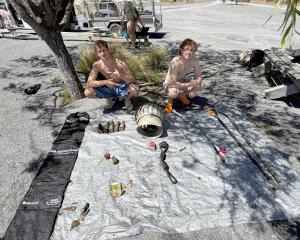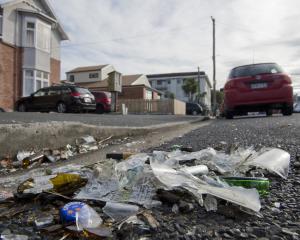The idea has been hailed by industry insiders as a positive move for travellers.
Details of the initiative are expected to be revealed at a joint press conference New Zealand Prime Minister John Key is scheduled to hold with Australian Prime Minister Kevin Rudd on Thursday.
Melbourne newspaper The Age has reported Thursday's announcement would include the potential scrapping of departure taxes, ending duplication of quarantine, customs and security checks and allowing planes to land at domestic terminals.
New Zealand government sources said the announcement would show progress was being made towards streamlining travel, and the changes would be introduced in stages.
The most important change would be recognition by each country of the other's security, immigration and quarantine checks, a system similar to that which operates between European Union countries.
That would be a big step towards a common border between the two countries, a goal Mr Key set himself soon after winning the last election.
Cr Walls last night said he assumed quarantine, customs and security checks would only be done once, and some checks would be done after passengers boarded the aeroplane.
Fees and taxes at the moment could exceed the ticket price charged by the airline.
"Those taxes the governments charge can be very hefty. If it [the changes] happened tomorrow, you could fly to Australia for $80."
But Mr Walls did raise one question: "What happens to duty-free?"
Airport chief executive John McCall said the move was "absolutely" a positive one, and estimated the reduction in ticket prices could be between 20% and 30%.
That would stimulate travel, because: "We know in the business it's all about price."
The charge known as "departure tax" was gathered by airports and was the only way infrastructure required to process passengers could be paid for, and was less likely to change.
Airports would need to assess what infrastructure would be required in future, with possible changes to everything from processing passengers and baggage to the way they dealt with biosecurity checks.
If both countries felt the risk was acceptably low, the process could be as simple as passengers self-swiping their passports when they entered the country.
Tourism Dunedin chief executive Hamish Saxton said Australians would be attracted by cheaper flights, and by anything that decreased processing time in airports, which extended a three-hour trip into an almost five-hour experience.
The economic climate in Australia was better and the move would help attract people to Otago, he said.
It is understood the announcement on Thursday will not indicate that a new regime is ready to be put in place immediately.
The introduction of the new procedures would depend on how long it took to integrate the systems and although Mr Key wanted it in place by Christmas, it could take longer than that.












